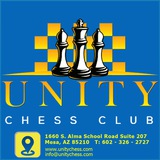🔵🔵🔵🔵
🔹 Alexander Beliavsky
🔹 Soviet, Ukrainian and Slovenian chess grandmaster
▪️Full name: Alexander Genrikhovich Beliavsky
▪️Country: Soviet Union (until 1991) Ukraine (1991–1994) Slovenia (since 1994)
▪️Born: December 17, 1953 (age 64) Lviv, Soviet Union, now Ukraine
▪️Title: Grandmaster (1975)
▪️FIDE rating: 2536 (January 2018) (No. 181 on the November 2011 FIDE ratings list)
▪️Peak rating: 2710 (July 1997)
♦️ Alexander Genrikhovich Beliavsky is a Soviet, Ukrainian and Slovenian chess grandmaster.
Beliavsky was born in Lviv, USSR, now Ukraine. Since 1994, he lives in Slovenia and he plays for the Olympic team there.
♦️ Alexander Beliavsky won the 1973 World Junior Championship and then a year later, at the age of only 21, he won the first of four USSR Championships (1974, 1981, 1987, 1990). He now represents Slovenia and has played a total of 15 Olympiads, most recently in Tromsø. That record includes leading the USSR team to gold medals in 1984 in the absence of both Garry Kasparov and Anatoly Karpov.
♦️ A memorable game of Beliavsky vs Ivanchuk in Linares 1993👇🏼👇🏼
▪️ Alexander Beliavsky vs Vassily Ivanchuk
▪️ Linares (1993), Linares ESP, rd 1, Feb-23
▪️ Queen's Gambit Declined: Barmen Variation (D37)
♦️ Review and download PGN file👇🏼👇🏼👇🏼
@UnityChess
🔹 Alexander Beliavsky
🔹 Soviet, Ukrainian and Slovenian chess grandmaster
▪️Full name: Alexander Genrikhovich Beliavsky
▪️Country: Soviet Union (until 1991) Ukraine (1991–1994) Slovenia (since 1994)
▪️Born: December 17, 1953 (age 64) Lviv, Soviet Union, now Ukraine
▪️Title: Grandmaster (1975)
▪️FIDE rating: 2536 (January 2018) (No. 181 on the November 2011 FIDE ratings list)
▪️Peak rating: 2710 (July 1997)
♦️ Alexander Genrikhovich Beliavsky is a Soviet, Ukrainian and Slovenian chess grandmaster.
Beliavsky was born in Lviv, USSR, now Ukraine. Since 1994, he lives in Slovenia and he plays for the Olympic team there.
♦️ Alexander Beliavsky won the 1973 World Junior Championship and then a year later, at the age of only 21, he won the first of four USSR Championships (1974, 1981, 1987, 1990). He now represents Slovenia and has played a total of 15 Olympiads, most recently in Tromsø. That record includes leading the USSR team to gold medals in 1984 in the absence of both Garry Kasparov and Anatoly Karpov.
♦️ A memorable game of Beliavsky vs Ivanchuk in Linares 1993👇🏼👇🏼
▪️ Alexander Beliavsky vs Vassily Ivanchuk
▪️ Linares (1993), Linares ESP, rd 1, Feb-23
▪️ Queen's Gambit Declined: Barmen Variation (D37)
♦️ Review and download PGN file👇🏼👇🏼👇🏼
@UnityChess
This media is not supported in your browser
VIEW IN TELEGRAM
▪️ Alexander Beliavsky vs Vassily Ivanchuk
▪️ Linares (1993), Linares ESP, rd 1, Feb-23
▪️ Queen's Gambit Declined: Barmen Variation (D37)
@UnityChess
▪️ Linares (1993), Linares ESP, rd 1, Feb-23
▪️ Queen's Gambit Declined: Barmen Variation (D37)
@UnityChess
🔹 The triumphant USSR team at the 1982 Olympiad (from left to right): Anatoly Karpov, Garry Kasparov, Lev Polugaevsky, Alexander Beliavsky, Mikhail Tal and Artur Yusupov
@UnityChess
@UnityChess
This media is not supported in your browser
VIEW IN TELEGRAM
🔸World Rapid Championship 2017
🔸Round 13
⚪️Nepomniachtchi,Ian (2729)
⚫️Rakhmanov,Aleksandr (2653)
🔸1-0
🔸Round 13
⚪️Nepomniachtchi,Ian (2729)
⚫️Rakhmanov,Aleksandr (2653)
🔸1-0
This media is not supported in your browser
VIEW IN TELEGRAM
🔸World Rapid Championship 2017
🔸Round 13
⚪️Li,Chao b (2732)
⚫️Wang,Yue (2690)
🔸0-1
🔸Round 13
⚪️Li,Chao b (2732)
⚫️Wang,Yue (2690)
🔸0-1
📘 15.Bd2!
Improving The position of the pieces!
15...Rad8 16.Be1 Qc8 17.Bg3 +/-
Improving The position of the pieces!
15...Rad8 16.Be1 Qc8 17.Bg3 +/-
📘 9.N×e4?
A strange miscalculation by Li that costs him the game against his childhood friend.
9...f×e4 10.B×e5 d×e5 11.Qh5+ g6 12.Q×e5+ Kf7 13.Q×h8 Bg7 14.Q×h7 Qg5 0-1 With the idea of Nf6
A strange miscalculation by Li that costs him the game against his childhood friend.
9...f×e4 10.B×e5 d×e5 11.Qh5+ g6 12.Q×e5+ Kf7 13.Q×h8 Bg7 14.Q×h7 Qg5 0-1 With the idea of Nf6
📘 23.h3?!
It's not going to be accurate, and White loses the opportunity to take an important e3-pawn.
(23.Qe4! Qf6 24.h3 Nh6 25.Q×e3=)
23...e4 24.Qf1 Nh6 -/+
It's not going to be accurate, and White loses the opportunity to take an important e3-pawn.
(23.Qe4! Qf6 24.h3 Nh6 25.Q×e3=)
23...e4 24.Qf1 Nh6 -/+
📘 27.Qe1?!
Carlsen has missed the only chance to get counterplay and fell into a passive position.
(27.R×c8! Q×c8 28.Qb1 h4 29.g4 Ng3 30.Qd1 Qc7 31.Qd4 Kh7 32.Q×e3 =)
27...Qe1 28.Qe7 -/+
Carlsen has missed the only chance to get counterplay and fell into a passive position.
(27.R×c8! Q×c8 28.Qb1 h4 29.g4 Ng3 30.Qd1 Qc7 31.Qd4 Kh7 32.Q×e3 =)
27...Qe1 28.Qe7 -/+
📘 23.Qc1!
Preparing Bd1-b3 in order to seize the a2-g8 diagonal. This would transform the passive bishop on f3 into a terrific piece now that Black has no light-squared counterpart.
23.Qb3?! Nc4
23.Be2, in order to control c4 square, is also interesting. However, the Kramnik plan is more precise.
Preparing Bd1-b3 in order to seize the a2-g8 diagonal. This would transform the passive bishop on f3 into a terrific piece now that Black has no light-squared counterpart.
23.Qb3?! Nc4
23.Be2, in order to control c4 square, is also interesting. However, the Kramnik plan is more precise.
📘 1.Bf1!
A typical plan in such positions.The bishop is transferred to the long diagonal where it will attack Black's queenside.
1.a4 it would be met by 1...g5! and black gets the initiative on the kingside.
1.e4 b5! 2.Bd3 (2.Bf1 b4 the e4 pawn is lost, however, White's two bishops warrant enough compensation for the pawn.) 2...Bb4 with the idea of 2...Nc5, Black pieces are getting so active.
A typical plan in such positions.The bishop is transferred to the long diagonal where it will attack Black's queenside.
1.a4 it would be met by 1...g5! and black gets the initiative on the kingside.
1.e4 b5! 2.Bd3 (2.Bf1 b4 the e4 pawn is lost, however, White's two bishops warrant enough compensation for the pawn.) 2...Bb4 with the idea of 2...Nc5, Black pieces are getting so active.
